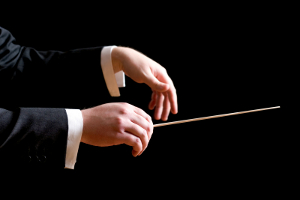Understanding the Symphony
1 day, 9:30 am - 4:30 pm

What is a symphony? For more than two centuries the symphony has represented the summit of a composer’s ambition. But what actually defines a symphony, and how do you listen to one? Learning more about symphonies can deepen your enjoyment of some of the most wonderful music ever composed. This music course gives you an understanding of what to listen for, and how to get more out of your listening to symphonies. We will explore the structure, history and development of the symphony, and listen to music from some of the greatest symphonies of all time. No musical knowledge is necessary.
Course Outline
Session 1
- Introduction to the Symphony
- The Definition of a Symphony
- First Movement: Sonata Form
Session 2
- The Classical Symphony
- The Origins of the Symphony
- Haydn, Mozart, Beethoven
- Haydn: Symphonies Nos. 94, 96
- Mozart: Symphonies Nos. 28, 38, 40 and 41
- Beethoven: Symphonies Nos. 5, 6 and 9
- Second Movement: Theme and Variations
Session 3
- The Romantic Symphony
- Schubert, Berlioz, Mendelssohn, Schumann, Brahms, Tchaikovsky
- Schubert: Symphony No. 8
- Berlioz: Symphonie Fantastique
- Mendelssohn: Symphony Nos. 3 and 4
- Liszt: A Faust Symphony
- Tchaikovsky: Symphony No. 4
- Third Movement: Minuet and Trio
Session 4
- The Twentieth Century Symphony
- Mahler, Sibelius, Vaughan Williams, Rakhmaninov, Stravinsky, Shostakovich
- Sibelius: Symphony No. 2
- Mahler: Symphonies Nos. 5 and 8
- Elgar: Symphony No. 2
- Vaughan Williams: Symphony No. 3
- Shostakovich: Symphony No. 5
- Prokofiev: Symphony No. 1
- Fourth Movement: Rondo Form
Music we will listen to includes
- Beethoven: Symphonies Nos. 5, 6 and 9
- Berlioz: Symphonie Fantastique
- Haydn: Symphonies Nos. 94, 96
- Elgar: Symphony No. 2
- Liszt: A Faust Symphony
- Mahler: Symphonies Nos. 5 and 8
- Mendelssohn: Symphony Nos. 3 and 4
- Mozart: Symphonies Nos. 28, 38, 40 and 41
- Prokofiev: Symphony No. 1
- Schubert: Symphony No. 8
- Shostakovich: Symphony No. 5
- Sibelius: Symphony No. 2
- Tchaikovsky: Symphony No. 4
- Vaughan Williams: Symphony No. 3

Buy the course notes for this class
In hard copy book form, through Lulu Press$22 + postage
About Susan Deas
Susan Deas is a professional musician, lecturer and teacher. She has been teaching music appreciation courses for more than twenty years, through Sydney University's Centre for Continuing Education, WEA Sydney and at other venues. Her training includes a Bachelor of Music with a major in Performance (Piano) and Musicology, a Master of Music Studies (Studio Pedagogy), a Bachelor of Arts (Communications), and an A.Mus.A in Musicianship. Susan teaches piano and music theory to adults and children, and plays piano and organ at various venues around Sydney. Susan is an Accredited Member of the Music Teachers’ Association of NSW.
More about Susan’s qualifications

